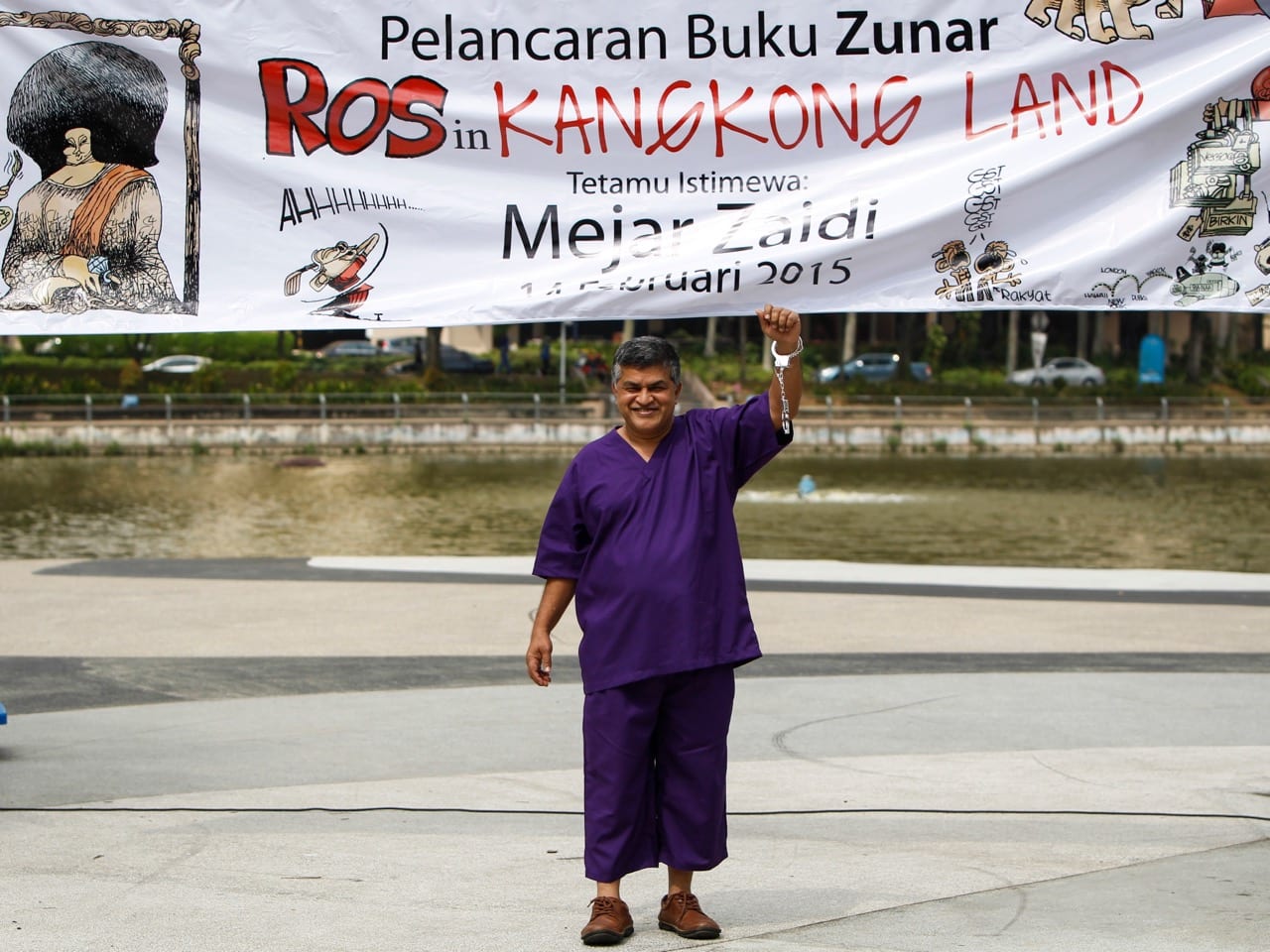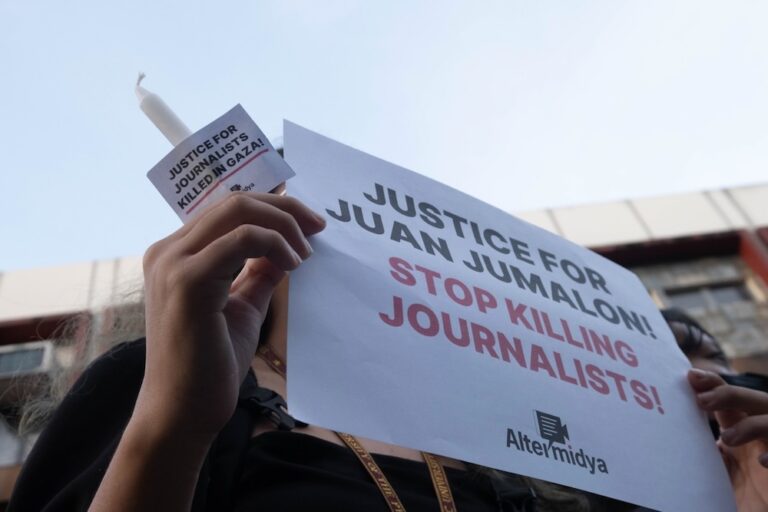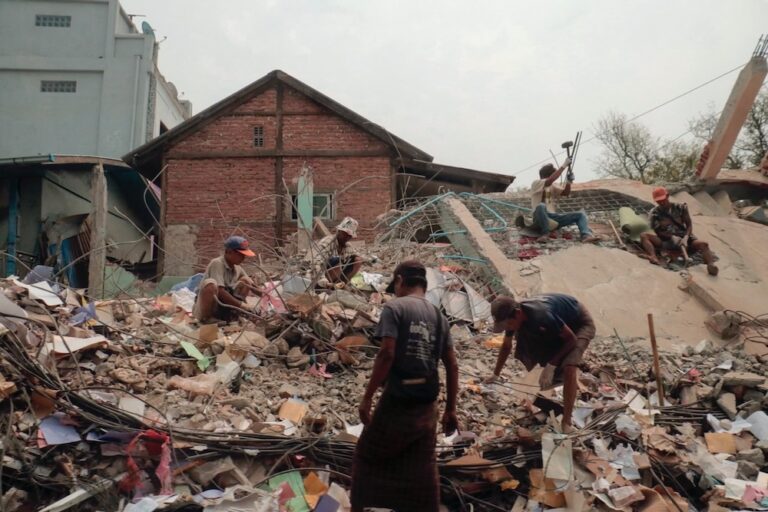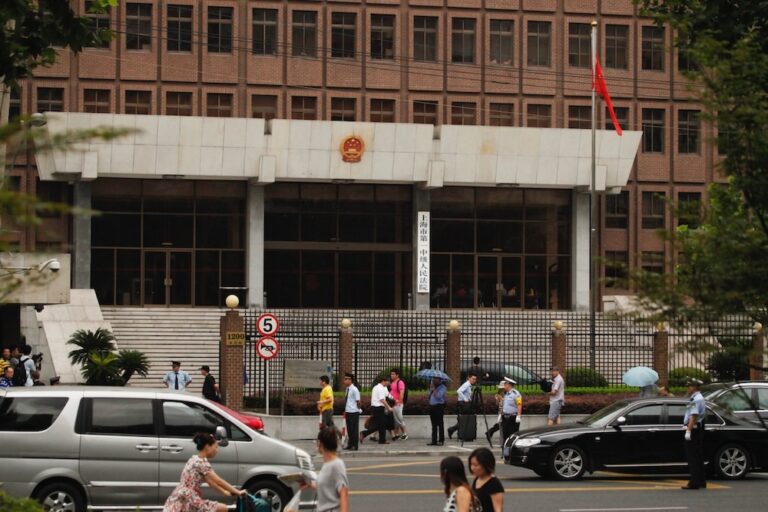October: Authorities use immigration rules to ban journalists and activists in Pakistan, Malaysia and Thailand; free expression advocates from Bangladesh and Malaysia win awards.
Across the region, immigration authorities have imposed various forms of restrictions to prevent journalists and activists from traveling for work or personal reasons. The authorities in Pakistan and Malaysia issued travel bans on a senior journalist and a cartoonist, respectively, while a democracy activist from Hong Kong was denied entry into Thailand.
In Pakistan, Dawn journalist Cyril Almeida was prohibited from leaving the country following his 6 October 2016 exclusive story on the rift between the civilian government and the military, the latter said to be frustrating efforts in tackling armed groups. Almeida found out his name was included in the Exit Control List (ECL) a day before his scheduled trip to Dubai on 11 October. Local and international press groups – among them the Pakistan Press Foundation, the International Federation of Journalists and Human Rights Watch – called for an end to the intimidation of journalists and to rescind the travel ban.
Dunya News tweets about Almeida’s case:
Govt is being criticised internationally, its record on freedom of press has been tarnished by putting @cyalm‘s name on ECL: @AajKamranKhan pic.twitter.com/UpgumTSZty
— Dunya News (@DunyaNews) October 11, 2016
According to media reports, Pakistan’s information minister Pervaiz Rasheed has resigned following an inquiry into the newspaper’s investigations, and Almeida’s name has been removed from the ECL.
In Malaysia, political cartoonist Zulkiflee Anwar Ulhaque, known popularly as Zunar, was stopped by the immigration in Kuala Lumpur as he was planning to travel to Singapore. Zunar was told that the ban was ordered by the Inspector General of Police and that he had been blacklisted since June this year. Zunar is known for his cartoons that frequently lampoon Malaysian politics and has been slapped with several sedition charges and has had his books banned, according to the IFJ. Cartoonists Rights Network International (CRNI) executive director Dr. Robert Russell said in a statement: “We were worried about this for some time. The authorities must lift this illegal infringement upon Zunar’s rights.”
Amnesty International’s Salil Shetty comments on Zunar’s travel ban:
Proud to stand with our friend @zunarkartunis. #Malaysia should drop travel ban and charges against him now https://t.co/LPUwd5QNXf pic.twitter.com/0qcN14BWfC
— Salil Shetty (@SalilShetty) October 19, 2016
On 5 October, Thailand’s immigration prevented the entry of Hong Kong pro-democracy activist and student leader, Joshua Wong, who made headlines for his role in the island’s occupy movement (“umbrella revolution”). Wong was traveling to Bangkok to participate in an event to commemorate the 40th anniversary of a massacre of pro-democracy students by security forces and royalist militias in 1976, The Guardian reported. Prior to the trip, he had expressed concerns given the abduction of Hong Kong bookseller Gui Minhai in Thailand, believed to be by Chinese agents.
During the ordeal in Bangkok’s Suvarnabhumi airport, Wong said he was held for 12 hours in a cell before being deported. He was not given an explanation, except being told that the request had come from China and that he had been blacklisted. Freedom House said in a statement if the Thai authorities succumbed to pressure from the Chinese government, they were “helping the Chinese Communist Party expand its repression abroad.”
Free expression awards
Bangladeshi publisher and writer Ahmedur Rashid Chowdhury, also known as Tutul, was chosen by the PEN Pinter Prize winner for 2016, Margaret Atwood, as this year’s International Writer of Courage Award recipient. Tutul’s works have been widely published, but like many other free thinking writers and bloggers, he has been a target of Islamic fundamentalists in the country. In October 2015, assailants attacked his office and left him critically injured. Tutul’s acceptance speech can be read here.
Canadian Journalists for Free Expression tweeted this in support of Tutul:
So happy to hear this, @MargaretAtwood definitely awarded the @englishpen prize to the right person! #Bangladesh #Tutul https://t.co/ygM8iXUVz1
— CJFE (@canadaCJFE) October 14, 2016
.twitter.com/widgets.js” charset=”utf-8″>
Malaysian feminist activist, poet and writer, Jac sm Kee was awarded the Stieg Larsson Prize for 2016 for her work promoting women’s rights to a free online environment, freedom of speech and to fight misogyny. “Jac SM Kee is a pioneer in the fight for gender equality. Through her groundbreaking work for digital feminist mobilisation and against online harassment, she paves the way for a new wave of feminism,” the jury was quoted as saying.
Kee works with the internet rights group Association for Progressive Communications, and is co-director of IFEX’s Malaysian member, the Centre for Independent Journalism.
Impunity
As press freedom advocates prepare to commemorate the International Day to End Impunity for Crimes Against Journalists on 2 November, the region continued to witness deadly attacks. In Afghanistan, journalist Mohammad Yaqub Sharafat, 23, was shot dead in the head and neck by unidentified gunmen while on his way home in the southern province of Zabul. The Afghanistan Journalists Center condemned the act and said that 11 journalists have been killed in the line of duty this year alone.
Reporters Without Borders noted an increase in violence in the country against journalists and media violence, in which the Taliban was responsible for most of the threats, but local authorities, the military and police were also contributing to the climate of fear for media personnel.
Afghanistan is ranked 7 in the Committee to Protect Journalists’ 2016 Global Impunity Index. Its ranking has dropped as no journalists have been targeted in direct retaliation for their work since 2008. Nevertheless, journalists continue to be killed in conflict or while covering dangerous assignments.



